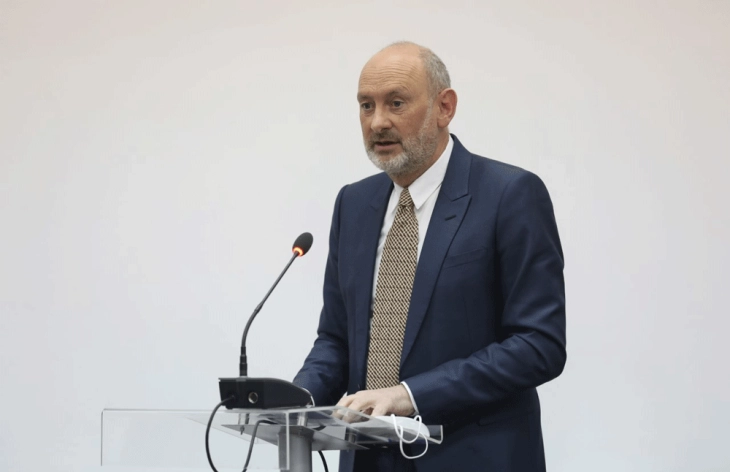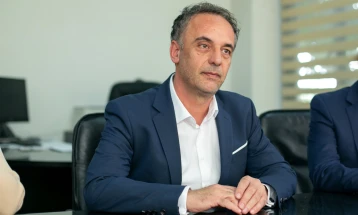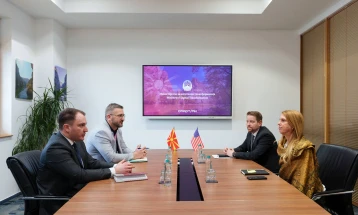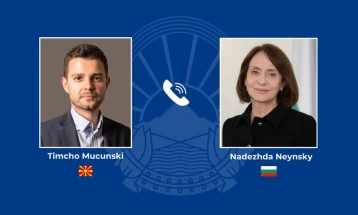Geer: EU integration process to be used to advance security and intelligence sector reforms

Skopje, 19 October 2022 (MIA) – The security and intelligence reforms are far from over. The EU integration process, which is now gaining momentum after the opening of the accession negotiations and sets additional requirements linked to protecting human rights and fundamental freedoms, should be used to make progress in reforms, because it will enable good governance and public trust in institutions in this very sensitive sector, as well as in other sectors, said EU Ambassador David Geer addressing annual conference within intelligence and security sector reform programme 2021-2026 hosted by DCAF – Geneva Centre for Security Sector Governance on Wednesday.
“Oversight and control of security and intelligence services and their reform is a complex matter, but it is a very important process. The Parliament was a committed partner in this process. We expect the existing surveillance legislation to be changed, in order for the oversight committees in Parliament to function better and for the Citizen Oversight Council to be fully functional. The creation of a ‘safe room’ should happen without further delay,” Geer said.
According to Geer, the security and intelligence services have shown openness and willingness to cooperate with the Parliamentary oversight committee, as well as civil society, which is a significant step forward that requires greater transparency and responsibility, and thus will increase public trust in the institutions.
“The Ministry of Interior is also committed to reform, but should continue to harmonize its legislation with EU principles and standards in terms of accountability, transparency and security. A good process has started again in the Ministry of Defence with the support of this programme. Namely, the Ministry works to improve gender equality in the Ministry and the Army. We hope that other security institutions in the country will follow this practice, as gender equality is a key international principle and the EU is committed to eliminating gender inequality, in order to improve efficiency,” Geer noted.
In terms of the judiciary, Geer added, we are encouraged that the Academy of Judges and Public Prosecutors is providing training on the use of special investigative measures.
“The effectiveness of judicial control and accountability of intelligence and security services depends on independent actors that include civil society, the media and the academic community. This informal type of oversight is of crucial importance in a democratic society. In conclusion, the reform of the security and intelligence sector should proceed further. It requires commitment and work by the political leadership and other stakeholders with the continued support of this programme” Geer underlined.







